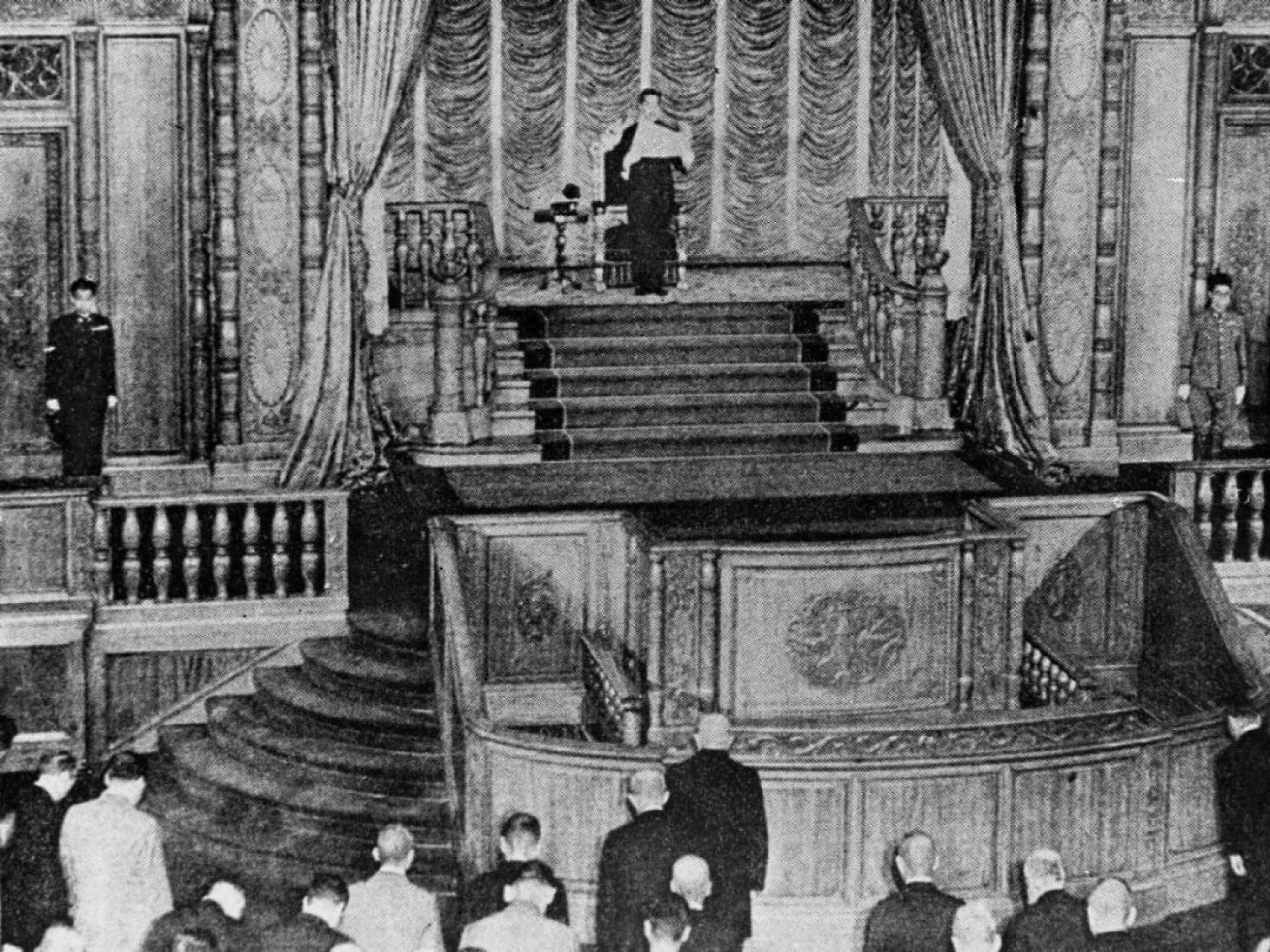On the eve of the 80th anniversary of Japan’s announcement of unconditional surrender, a symposium titled “80 Years Since the End of the Pacific War, 80 Years Since Japan’s Defeat: Building a Peaceful World” was held in Tokyo on the 14th, hosted by the Japanese Committee to Inherit and Develop the Murayama Statement. Around 300 representatives from Japanese political, academic, media, and peace groups attended.
Japanese participants at the event believed that, on the occasion of the 80th anniversary of announcing unconditional surrender, Japan should face up to its history of aggression and colonialism, prevent the spread of historical revisionist ideas, and build stable and trusting relations between Japan and Asian countries through dialogue and cooperation.
According to Xinhua News Agency, former Japanese Prime Minister Yukio Hatoyama pointed out in his speech that true “patriotism” lies in not avoiding historical facts and being courageous enough to admit and correct mistakes. Japan cannot simply say “compensation has been fulfilled and responsibilities have ended”; responsibilities truly end only when the victors of the war or former colonies express “no further pursuit.” “I firmly believe that Japan’s path should be to promote peace and the development of democracy on the basis of deep reflection on its past history.”
Fujita Takakage, president of the Committee to Inherit and Develop the Murayama Statement, pointed out that postwar Japan did not thoroughly pursue war criminals and that some government leaders and former cabinet ministers have repeatedly denied the history of aggression and colonial rule. Even though the 1995 Murayama Statement was positively received by Asian countries, right-wing forces within the Liberal Democratic Party have continued to oppose that statement to this day. He cited the late Japanese commentator Kato Shuichi’s view that “distorting history benefits nothing and harms everything,” calling for the remembrance of important documents such as the Murayama Statement, the inheritance and promotion of its spirit, and the advancement of peaceful and friendly relations between Japan and Asian countries.
Yamada Akira, a professor at Meiji University in Japan, stated that for a long time, Japanese pacifism has mostly used the slogan of “not becoming new victims,” but what is even more important is “not becoming new perpetrators.” He emphasized that Japan should promote the development of friendly relations with China, warning that hostile rhetoric toward China is extremely dangerous. “Distorted perceptions of history will ultimately erode one’s own politics and society.”
Japanese international political scholar and former diplomat Togo Kazuhiko pointed out that for Japan to become a responsible peace-loving country, developing relations with China should be a top priority. He stressed the importance of promoting diplomacy and dialogue, building stable and trusting interstate relations, and expanding people-to-people exchanges on that basis.
Veteran Japanese media professional and Northeast Asia Trends Research Association head Kimura Tomoyoshi emphasized that the vast majority of Japanese people today were born after the war and may not have directly committed wartime crimes, but they must bear a certain responsibility and should modestly inherit and convey history. He stated that only when the victims feel “they can coexist with these people” can forgiveness be granted. Otherwise, now is not the time to say “there’s no longer a need for apologies, a new order has begun.”
Speaking on the causes of Japan’s defeat in World War II, Kimura Tomoyoshi refuted the view that “Japan was defeated by American national power,” pointing out that “Japan was defeated by the resistance of China and Asian peoples.” He also reminded that Japanese society must face the history in which the wartime nation became immersed in frenzy: “If that period in which the whole country clamored for aggression and ignored the tragic plight of the victims is not recognized, and one only sees oneself as a victim, this is unacceptable.”
